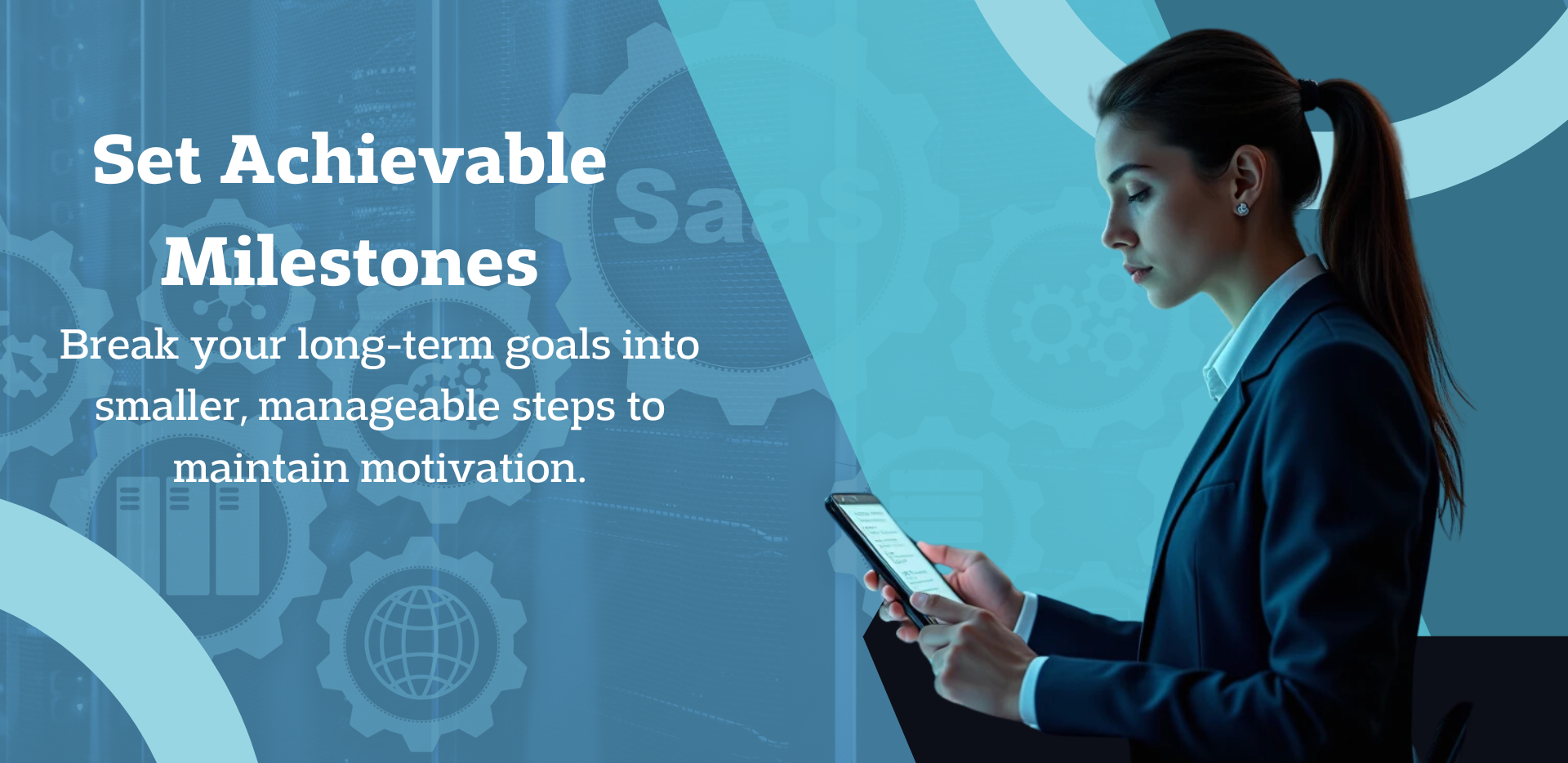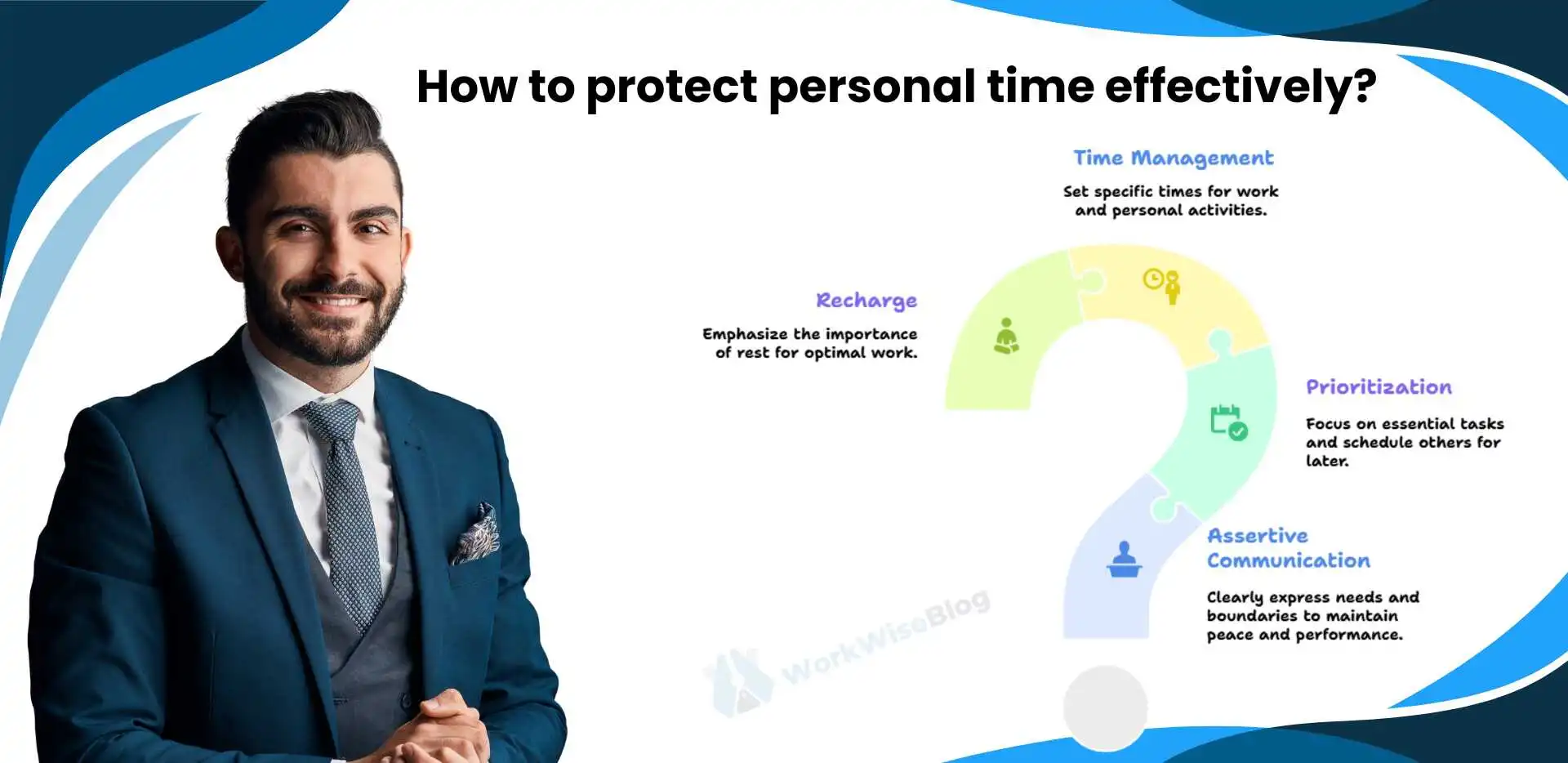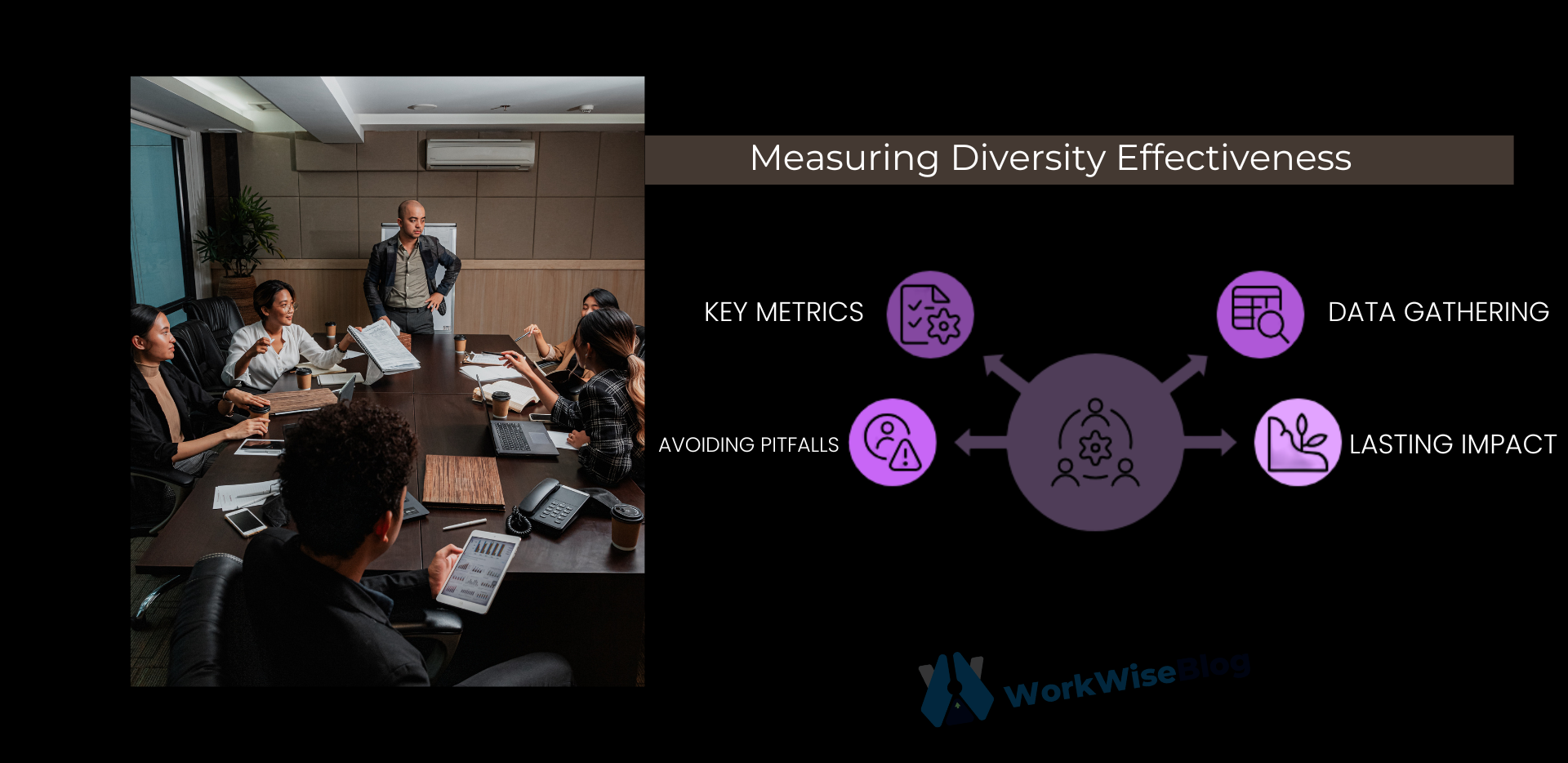
Why Long-Term Skill Development Projects is So Hard
Unlike short-term jobs, projects that are not short-term never provide instant results. There’s nothing very challenging about stopping when the work isn’t working out. Still, awareness of why this takes place can certainly help prevent it.

Challenges of Long-Term Skill Development Projects:
Delayed Gratification:
The outcome does not come directly, which makes it hard to maintain attention.
Monotony:
Repetitive performance of routine practice may be a little dull
Self-Doubt:
You can find yourself doubting what you are doing now and whether the skill is worth all this effort put into it.
Therefore, the keys to rise over them are regular motivation through small wins, clear goals, and engaging learning methods.

1. Break Down Your Goals into Manageable Milestones:
Why It Works:
Large, long-term goals can feel overwhelming. Breaking them into smaller milestones makes progress more visible and achievable.
How to Do It:
- Establish Smart Goals: your goal has to be specific, measurable, achievable, relevant, and time-bound.
- Track your progress: Make use of something like Trello, Notion, or an old notebook for tracking your own progress.
- Celebrate Small Wins: Reward yourself at every milestone reached to keep your motivation up.
When learning a new language, one can set milestones such as mastering the basic greetings, holding a short conversation, and passing a language proficiency test

2. Find Your "Why" and Revisit It Regularly
Why It Works:
The connection of the learning journey to a deeper purpose gives you the reason to go on when motivation wanes.
How to Do It:
- Identify Your Ultimate Goal: Ask yourself, Why am I doing this? Whether it’s career advancement, personal growth, or a dream project, know your “why.”
- Write It Down: Keep a journal or sticky note with your goal visible in your workspace.
- Reflect on Your Goal: At the slightest sign of demotivation, remind yourself about your larger objective.
Example:
You’re learning a coding language to create your own app or to get a job in tech. Mind that picture.
3. Gamify Your Learning
Why It Works:
Turning learning into a game makes it more enjoyable and engaging, keeping you motivated over time
How to Do It:
- Use Apps and Tools: Platforms like Duolingo, Codecademy, and Memrise use gamification to make learning fun.
- Create Challenges: Set personal challenges, such as completing a chapter in a week or hitting a streak.
- Reward Yourself: Earn points or rewards for completing learning sessions.
Pro Tip:
If you’re learning with friends or colleagues, introduce friendly competition to boost engagement.
4. Embrace the Plateau Phase
Why It Works:
Every skill development projects journey has plateaus—periods where progress seems to stall. Understanding that this is normal helps you push through.
How to Do It:
- Change Your Approach: If you’re hitting a plateau, try a different learning method or tackle a new aspect of the skill
- Seek Feedback: Ask your peers or mentors for feedback on what you can improve
- Maintain Consistency: Even though the progress might be slow in your account, it will ultimately pay off.
Example:
A person who wants to learn a new instrument, for instance, may perform all the basic chords for a number of time. Then one will stop applying themselves in trying to find anything challenging new.
5. Surround Yourself with Supportive Communities
Why It Works:
Learning alongside others with similar goals keeps you accountable and motivated.
How to Do It:
- Join Online Communities: Platforms like Reddit, LinkedIn, and Facebook have groups dedicated to various skills.
- Find an Accountability Partner: Partner with someone on a similar journey to share progress and challenges.
- Attend Workshops or Webinars: Stay connected with like-minded individuals through events and courses.
Pro Tip:
Engaging in communities also gives you access to advice, resources, and encouragement.
6. Mix Up Your Learning Methods
Why It Works:
Variety keeps learning interesting and prevents boredom.
How to Do It:
- Try Different Formats: Use a combination of videos, podcasts, books, and hands-on practice.
- Explore Real-World Applications: Apply what you’ve learned to real-life projects or tasks.
- Switch Between Passive and Active Learning: Balance reading and watching videos with practical exercises and quizzes.
Pro Tip:
If you’re learning a new software tool, watch tutorial videos, read documentation, and practice by creating your own projects.
7. Use AI Tools to Personalize Learning
Why It Works:
AI tools can adapt to your learning pace and provide personalized recommendations, keeping the experience engaging and effective.
AI Tools to Try:
- Coursera: Uses AI to suggest courses based on your progress and interests.
- Grammarly: Helps improve your writing skills with personalized feedback.
- Khan Academy: Uses AI to adjust the difficulty level of exercises based on your performance.
Example:
If you’re learning data analysis, tools like DataCamp use AI to tailor lessons to your progress and highlight areas for improvement.
8. Manage Your Energy, Not Just Time
Why It Works:
Productivity isn’t just about time management—it’s about managing your energy levels.
How to Do It:
- Schedule Learning Sessions During Peak Energy Times: Identify when you’re most alert and focused, and schedule your practice sessions accordingly.
- Take Breaks: Use the Pomodoro method to ensure you stay focused but do not exhaust yourself.
- Prioritize Self-Care: Take good care of your sleep, diet, and fitness to keep energized.
Pro Tip:
Avoid overexertion. This is a marathon, not a sprint.
9. Track Your Progress and Reflect
Why It Works:
How to Do It:
- Use Progress Trackers: Habitica or Trello could be used for better visualization.
- Reflect Weekly: Spare some minutes weekly to reflect on what you’ve learned and areas of improvement.
- Adjust Goals as Needed: If things are going terribly, don’t hesitate to alter the milestones in view of your progress.
Example:
Say you are learning graphic design; note how many projects you have finished and skills you have acquired over time.
10. Reward Yourself Along the Way
Why It Works:
Rewards create positive reinforcement, meaning you are likely to stick to your learning plan.
How to Do It:
- Set Small Rewards: Treat yourself to something small each time you mark a milestone.
- Plan a Big Reward: Celebrate with a bigger reward, such as a weekend trip or a new gadget, for bigger accomplishments.
- Share Your Success: You can celebrate progress with your community in social media posts or in person.
Example:
if you finish a certification, treat yourself to a dinner out or buy a new book.
Common Mistakes to Avoid
- Setting Unrealistic Goals: Avoid perfection and instead focus on progress.
- Skipping Breaks: Burnout can be real. Take regular breaks to stay refreshed.
- Ignoring Feedback: Seek constructive feedback to better yourself faster.
Final Thoughts:
Staying motivated on long-term skill development projects can be quite challenging, but learning the right mindset and strategies will help you enjoy and reward yourself for your efforts. Achieving landmark milestones, embracing variety, and using AI tools to personalize learning will keep you moving forward without running on burnout.
Ready to stay motivated? Start by applying one of these strategies today and keep moving forward on your learning journey.













